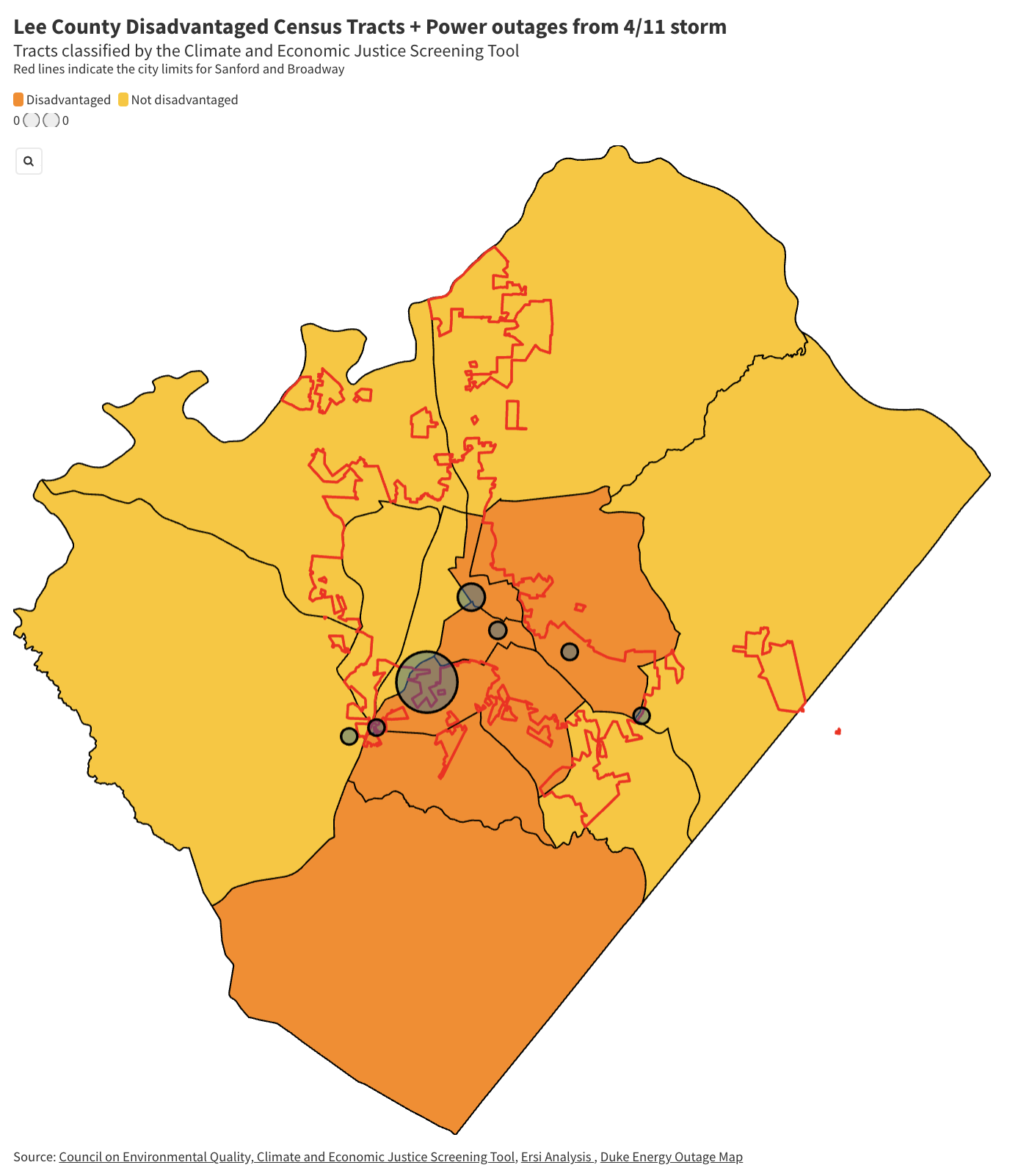Weathering the Storm: A Look at Grid Reliability in North Carolina’s Environmental Justice Communities
When the weather takes a turn for the turbulent, our first call to action is usually to address the reliability of the power grid. It is a modern lifeline, one that seems woven into the very fabric of our daily lives. But just as our weather patterns develop into extremes, the grid too, is signaling distress. In North Carolina, where the winds of change—including climate change—are all too palpable. This is a cause for concern and urgent reform.
On April 11, when a storm whipped through the state, leaving almost 20,000 Duke Energy customers without power, was not an isolated incident. It painted a broader picture of who bears the brunt of this malfunctioning system. The News and Observer’s report detailed the distressing impacts of the outage, but a deeper narrative unfolds when we examine the details, revealing more about vulnerable populations experiencing an inequitable exposure to environmental risk in the state.
On one side, we have an undeniable spike in the frequency and intensity of extreme weather, a disconcerting symptom of a rapidly changing climate. We should not forget Winter Storm Elliot when more than 500,000 people lost power on one of the coldest days of 2022. On the other side, we confront the stark reality that these calamities do not distribute their burdens evenly. Instead, they hover over low-income families and people of color—the environmental justice communities.
Caption: Map detailing the areas where outages occurred on April 11. William Munn, PhD
It’s no coincidence that these pockets of society find themselves most vulnerable. Historic disinvestment in infrastructure, housing, and essential services has trapped underserved communities in spaces devoid of any real built resilience, ensuring that when climate disasters strike, the devastation is magnitudes worse. The deprivation of vital services worsens current inequalities and erects obstacles to achieving stability in quality of life.
Yet in North Carolina, it is impossible to assess the level of energy reliability. The only reliability metrics reported publicly in the state are system averages of outage duration and frequency – hiding important information, like if reliability varies between one neighborhood and the next. Emerging research from Minnesota, where utilities have to report reliability at the census block level, shows that census blocks with higher percentages of people of color and low-wealth are strongly associated with worse reliability. We must learn from this experience and require utilities to report reliability at a census tract level so we can target grid investments where they are needed the most.
North Carolinians, and communities nationwide, need to advocate for a grid system characterized by a novel form of resilience—one that is deliberately fortified in a fair, inclusive manner.
This entails investing in conventional grid infrastructure and embracing distributed energy resources (DERs). These advancements position power generation and storage closer to consumers, significantly reducing the grid’s susceptibility to wide-scale disruptions. Envision a grid interspersed with community solar and storage projects that power urban hubs designed to sustain critical services during severe weather events.
Adopting this approach creates a more resilient system and ensures a more equitable one. It spreads the advantages of energy autonomy and cleaner power to those in greatest need – a more sustainable, equitable tomorrow.
The implementation of this vision requires bold leadership and unlikely alliances. Utilities, local and state governments, and grassroots organizations must come together to steer the course away from vulnerability towards resilience.
The good news is that the technology exists, the momentum is building, and there are models from across the globe to draw inspiration from. The challenge now is to adapt and innovate these models to serve North Carolina’s unique needs and challenges.
The path forward is clear; it’s a question of political will and public pressure. Residents across North Carolina, primed by their experience of April 11, 2024, must rise to demand this power shift—from the centralized incumbents to a distributed, equitable network of power.
The acceleration of climate change and its weather disruptions is a shared global plight, but its impacts are personal. It is not just electrons flowing through our wires; reliable, clean energy is essential to our communities. It’s time we ensured that everyone, regardless of zip code or income, has a right to this lifeline.
William Munn, PhD, Regional Director of the Carolinas, Vote Solar
Jake Duncan, Regulatory Director, Southeast, Vote Solar


